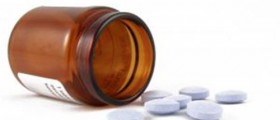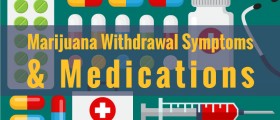
Caffeine is a powerful stimulant and if it is used on a regular basis, particularly in large amounts, sudden cessation of caffeine consumption may cause specific withdrawal symptoms. It is estimated that 1 out of 8 people will face symptoms of caffeine withdrawal once the products containing caffeine are discontinued. The symptoms generally last for at least 2 days or sometimes more. Still, caffeine withdrawal is not so serious and most people can cope with it quite well.
Symptoms of Caffeine Withdrawal
Caffeine withdrawal symptoms develop 12 to 24 hours after the last product containing caffeine is taken. They become most intensive within 20-48 hours. And, as it has already been mentioned, even though they generally last 2 days they may even linger up to a week.
The most frequent symptoms of caffeine withdrawal include headache, anxiety, depression, drowsiness, and fatigue, problems with concentration, muscle spasms and irritability. A person may additionally experience muscle weakness and find it hard to work. There are several more symptoms associated with caffeine withdrawal. However, they do not occur so often. Some of them are tremor, nausea, vomiting and heart palpitations.
In some cases caffeine withdrawal may lead to serious mood instability which requires prescribed medications. Headache associated with caffeine withdrawal can be brought under control with pain killers. A person who is determined to quit with caffeine should pay attention on which pain killer he/ she is going to take since some of them contain caffeine as one of the ingredients.
In case some of the symptoms linger, one is supposed to consult a doctor because these may be connected to certain underlying conditions.
Connection between Consumption of Caffeine and Withdrawal Symptoms
In case a person consumes large amounts of caffeine he/ she is at a higher risk to develop more intensive symptoms of caffeine withdrawal. All people who consume caffeine on a regular basis are most likely to develop withdrawal symptoms once they decide to quit consuming products containing caffeine. Even a short term consumption of caffeine may lead to the onset of withdrawal symptoms. Still, the encouraging fact is that caffeine withdrawal symptoms affect only 50% of all consumers.
Some Effects Associated with Intake of Caffeine
In spite of all potential problems, many people opt for caffeine. The substance is highly effective in improving one's concentration and performance. These effects are great for people who suffer from excessive daytime sleepiness.
One more thing worth of mentioning is that some people may be susceptible to adverse effects of caffeine, hence they are not supposed to consume it. These side effects are generally short-termed and include headache, anxiety/nervousness, tremor, insomnia, irritability, panic attacks and increased urination.

















Your thoughts on this
Loading...